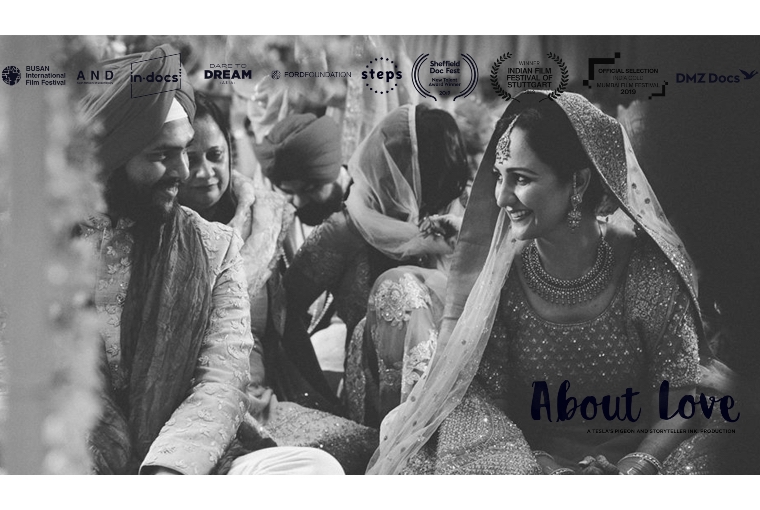

THE FILMMAKER
‘If I were to step out of my body and observe myself, I would describe myself as someone chaotic, constantly struggling to be in control,’ says Archana Phadke, an alumnus of the Berlinale Talent Campus and a National Award winner. For her, films have always been her way of dealing with boredom with the self and finding a connection with the world that surrounds her. Consequently, filmmaking has become for her, a way of escaping therapy. Her short film, Uski Baarish [2013] was screened at various international film festivals including Toronto International Film Festival. Since then, she has co-edited various critically acclaimed films and documentaries such as Placebo and Raghu Rai, An Unframed Portrait.
She loves the work of Michael Haneke in this regard and his film, The Seventh Continent, is one of her favourite films of all time. ‘His films have always had remarkable compositional rigour and technique, but what mesmerises me most about his work is the spectacular yet seamless transferals from mundanity to horror,’ she says.
THE FILM
Archana’s film, About Love, premiered at the Sheffield Doc Fest 2019, where it won the New Talent Award and has also won the Best film award at the Indian film festival of Stuttgart 2019. The film deals with three generations of the Phadke family who live together in their ancestral home in downtown Mumbai. ‘About Love is my debut feature documentary as a director and it is a film about my family. I think for most filmmakers, their first films are about subjects that are closest to them. For me it was my home and my family,’ she tells me.
With her brother’s wedding coming up, and her own misgivings towards marriage, the filmmaker turns the camera inwards towards her family. Rooted in the ebb and flow of ‘unspectacular time’, the personal becomes political as power structures within the family first become visible, and eventually, unravel. Cruel and comic in equal measure, the film vignettes the vagaries of affection across generations within this family tied together by something stranger than love.
THE PROCESS
Since Archana has always been very interested in observing small ecosystems and understanding the dynamics that sustain them, with About Love she decided to view her family home and its inhabitants, both as a filmmaker, and as an essential member of this ecosystem. ‘What was fascinating for me was, that, the most banal moments I have witnessed all my life transformed into experiences that gave me a deeper understanding of both the people I was observing, and the life that emerged from them,’ she says. The film was shot completely on a handy-cam and its intimate format gave her close access to familiar, yet absurd spaces, to create a very ordinary but poignant story of a middle-class family.
The process of filmmaking was of course replete with various challenges for Archana. One of them was adopting a dual role – that of a family member and a filmmaker and in doing so, maintaining a very sensitive balance between the two roles. ‘But the biggest challenge’, she tells me, ‘was to let go of my own notions and ideas and become a receiver. It was only then that I could react to the characters and situations in an objective and dignified way while retaining the personal spirit of the film.’ Nevertheless, the movie has been screened a couple of times already and has aroused a positive response. ‘I am very glad to see that even though the story is very local, set in the heart of Bombay, its universal themes are able to move people. It’s rather special to be able to connect with people from outside and have conversations about family, love, death, friendships, marriage and gender roles at a very human level, which was exactly what I had intended,’ says Archana.

THE FUTURE
About Love is set to screen in Korea, Mumbai and New York in the coming months. Meanwhile the filmmaker has suggested that her next venture would possibly be a fiction film, set in Mumbai, that observes communities that have lived an entire lifetime together, confronted by losing their homes.
This article was initially published in our October 2019 issue.
Text Nidhi Verma